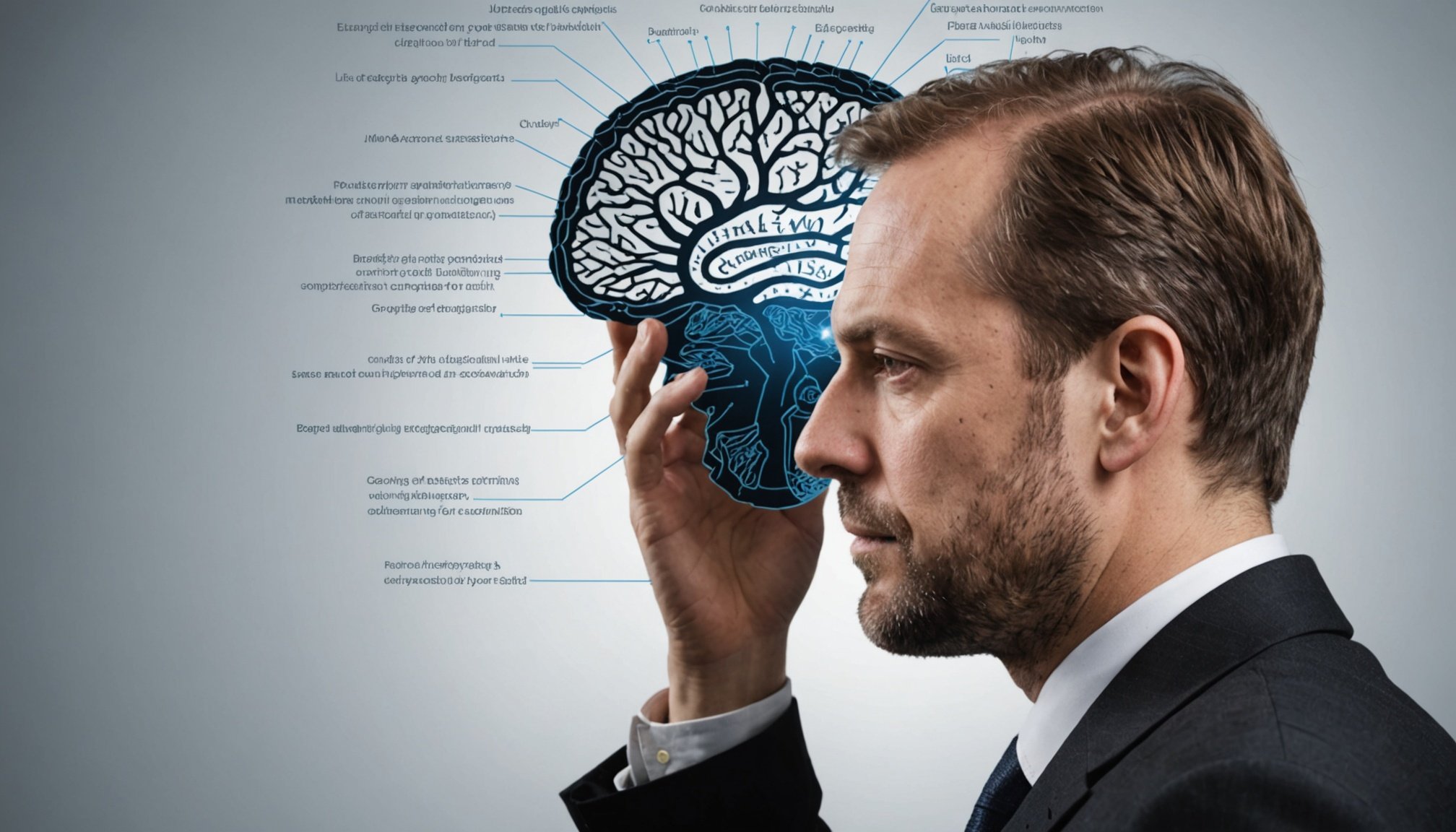The Crucial Role of UK Forensic Psychologists in Evaluating Criminal Defendants’ Mental Competence to Forensic Psychology
Forensic psychology is a specialized field that bridges the gap between psychology and the legal system. In the UK, forensic psychologists play a vital role in the criminal justice system, particularly in evaluating the mental competence of criminal defendants. This article delves into the complexities of forensic psychology, the key functions of forensic psychologists, and how they impact the legal process.
Understanding Forensic Psychology
Forensic psychology is the application of psychological knowledge and methods to understand criminal behavior, legal decision-making, and various other legal matters. Unlike popular media portrayals that often focus on criminal profiling, the real-world role of forensic psychologists is far more nuanced and multifaceted.
Also read : Discover yourself: accurate personality tests for growth
Key Functions of Forensic Psychologists
Forensic psychologists perform a wide range of duties, including:
-
Criminal Profiling and Investigation: While this aspect is often sensationalized, it involves analyzing crime scenes, behaviors, and patterns to predict the characteristics of an offender. However, this is just one part of their broader responsibilities.
In the same genre : How UK Pediatricians Can Combat Childhood Obesity: The Power of Early Interventions
-
Competency and Insanity Evaluations: These are among the most critical tasks for forensic psychologists. They assess whether a defendant is mentally fit to stand trial and whether they were sane at the time of the crime. This involves determining if the defendant can understand the legal proceedings, instruct their defense, and participate meaningfully in the trial.
-
Risk Assessment and Recidivism: Forensic psychologists evaluate the risk of reoffending, particularly for violent or sexual offenders. They use clinical judgment and actuarial tools to predict future criminal behavior, which is crucial for parole decisions, sentencing, and treatment planning.
-
Counseling and Treatment: Forensic psychologists provide therapy to offenders and victims. They work in correctional settings, offering treatment for mental health disorders, substance abuse, and other issues. For victims, they provide trauma-informed therapy to help cope with the aftermath of crimes.
Evaluating Mental Competence
Evaluating the mental competence of a defendant is one of the most significant roles of forensic psychologists. Here’s a detailed look at this process:
Competency to Stand Trial
Competency to stand trial refers to the defendant’s ability to appreciate and understand the charges against them and to assist in their own defense. Forensic psychologists assess several factors, including:
- Understanding of Legal Proceedings: Can the defendant comprehend the nature of the charges and the legal process?
- Ability to Instruct Defence: Can the defendant communicate effectively with their lawyer?
- Participation in the Trial: Can the defendant participate meaningfully in the trial proceedings?
A failure to assess this accurately can lead to miscarriages of justice, making the role of the forensic psychologist indispensable.
Case Studies: Illustrating the Complexity
Real-life cases highlight the challenges and complexities faced by forensic psychologists.
Example: Mr. Chigley’s Case
In a case shared by Dr. Peter McAllister, a forensic psychiatrist, Mr. Chigley had a long history of mental illness and drug misuse. At the time of his serious assault offense, he was off his prescribed medication and consuming street drugs, which aggravated his condition. During the interview, Mr. Chigley initially appeared calm but became enraged when asked about his nickname, abruptly ending the interview. This case illustrates the difficulties in assessing fitness to plead when dealing with individuals who may not be in a stable mental state.
The Role of Forensic Psychologists in Court
Forensic psychologists often serve as expert witnesses in court, providing critical insights into a defendant’s mental state.
Expert Witness Testimony
As expert witnesses, forensic psychologists communicate complex psychological concepts to judges and juries. Their objectivity is paramount, as they must provide unbiased, scientifically-backed opinions based on psychological testing, research, and clinical experience.
-
Insanity Defense: Forensic psychologists evaluate whether a defendant was sane at the time of the crime. This involves assessing whether the defendant had the mental capacity to understand the nature of their actions and whether they exhibited mens rea (guilty mind) and actus reus (voluntary committing of an unlawful act).
-
Risk Assessment: In addition to competency evaluations, forensic psychologists assess the risk of reoffending. This information is crucial for sentencing, parole decisions, and treatment planning.
Practical Insights and Actionable Advice
For legal professionals working with forensic psychologists, here are some practical insights:
Clear Instruction
It is essential to provide clear instructions to forensic psychologists. This includes specifying the exact questions to be answered and the scope of the evaluation. Clear communication ensures that the psychologist can provide the most relevant and useful information to the court.
Selecting the Right Expert
Choosing the right forensic psychologist is critical. Legal professionals should ensure that the psychologist has the appropriate qualifications, experience, and expertise relevant to the case. In the UK, only those registered with the Health & Care Professions Council (HCPC) can legally practice as forensic psychologists.
Table: Comparing Clinical and Forensic Psychology
| Aspect | Clinical Psychology | Forensic Psychology |
|---|---|---|
| Focus | Diagnosing and treating mental health disorders | Assessing mental states for legal cases, providing expert testimony |
| Setting | Therapeutic settings, clinics | Legal settings, courts, law enforcement |
| Client Interaction | Direct work with clients for therapy | Often indirect, providing expertise to courts and law enforcement |
| Education and Training | Undergraduate degree in psychology, clinical psychology doctorate | Undergraduate degree in psychology, postgraduate degree in forensic psychology, HCPC registration |
| Licensure | State licensure required | Licensure not always necessary, depends on the specific role |
| Examples of Work | Therapy for mental health disorders, counseling | Competency evaluations, risk assessments, expert witness testimony |
Quotes from Experts
-
“Forensic psychiatry is a complex and evolving field that plays a crucial role in the intersection of law and mental health. Experts like myself offer invaluable insights into the mental state of defendants, helping to ensure that justice is both fair and informed by sound medical knowledge.” – Dr. Peter McAllister.
-
“Forensic psychology is focusing on trying to understand psychological problems associated with criminal behaviour using psychological theories. It has little to do with crime profiling as seen on television.” – Dr. Nicholas Longpre.
Forensic psychologists in the UK play an essential role in the criminal justice system, particularly in evaluating the mental competence of defendants. Their expertise ensures that justice is fair and informed by sound psychological knowledge. As the legal system continues to evolve, the role of forensic psychologists will remain critical in addressing the complex intersection of law and mental health.
By understanding the nuances of forensic psychology and the specific roles that forensic psychologists fulfill, legal professionals can better navigate the complexities of mental health in legal contexts. This not only enhances the fairness of the justice system but also ensures that defendants receive the appropriate treatment and support based on their mental health needs.
In the words of Dr. Peter McAllister, “By ensuring that legal professionals provide clear instruction and select experts with the appropriate qualifications and experience, the criminal justice system can better address the needs of individuals with mental health disorders, ensuring fair and just outcomes for all involved.”











